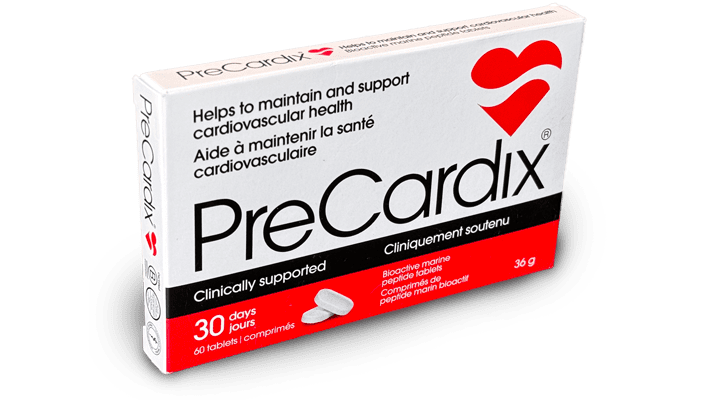How proactively managing stress positively impacts your heart health.
Stress as a Risk Factor | Address your stress: Mindfulness and Lifestyle Modifications| Hypertension Intervention
Many factors cause hypertension or high blood pressure.
Some of these risk factors are non-modifiable such as age or family history, but most are modifiable, meaning we can change them. Stress is one of several modifiable risk factors for hypertension. In our fast-paced and stress-filled world, stress management has become essential for mental and physical wellbeing. Your cardiovascular health is no exception! Stress reduction techniques like mindfulness and meditation can have a significant impact on lowering your blood pressure.
Stress is a Modifiable Risk Factor
Hypertension Canada lists stress as a cause of hypertension and managing stress as an essential lifestyle change to help control hypertension. There are several types of stress. When we experience short-term stress, good or bad, our bodies produce a surge of hormones that cause our heart to beat faster and blood vessels to narrow, temporarily increasing our blood pressure. This necessary physiological reaction is acute stress, which helps us respond to an isolated stressful situation such as a surprise party or a fender bender. Episodic stress is when you experience frequent bouts of acute stress, this is more problematic because it happens more frequently. You experience episodic acute stress when you are consistently late or misplace your keys.
Chronic stress is when we stay in a heightened stress state for days or weeks at a time. Observational studies have identified a statistically significant association between ongoing work-related stress and hypertension2. Common causes of chronic stress include; career, family/relationships, financial concerns, and the uncertainty and fear surrounding the COVID-19 pandemic.
The Centre for Addiction and Mental Health (CAMH) recognizes that COVID-19 may be stressful, and the anxiety about a new disease and what could happen can be overwhelming. Furthermore, social distancing and other public health actions can lead to isolation and loneliness, further increasing stress and anxiety. There has never been a more critical time to address your stress.
Address Your Stress and Blood Pressure
Stress management is one of the most amazing tools for your cardiovascular health and overall wellbeing. Research shows yoga and meditation are exceptional at reducing both stress and blood pressure. Just 2 hours a week of mindfulness for eight weeks can significantly reduce your blood pressure compared to not engaging in mindful activities3.
The cardiovascular benefits of mindfulness are numerous. It lowers both systolic and diastolic blood pressure and decreases resting heart rate and peripheral vascular resistance4,5. Relaxation techniques can also reduce the hypertensive response to emotional stress4, meaning you can change how your body responds in stressful situations!
Addressing your stress
This is critical for mental, emotional and physical wellbeing. Regularly practicing these stress management techniques can help control your blood pressure. Don’t forget to record your blood pressure weekly. Regular blood pressure monitoring is a healthy habit and will keep you on track to reach your overall wellness goals.
References
- Musa-Veloso K, Paulionis L, Pelipyagina T, Evans M. A Randomized, Double-Blind, Placebo-Controlled, Multicenter Trial of the Effects of a Shrimp Protein Hydrolysate on Blood Pressure. Int J Hypertens. 2019;2019:1-13. doi:10.1155/2019/2345042
- Sparrenberger F, Cichelero FT, Ascoli AM, et al. Does psychosocial stress cause hypertension? A systematic review of observational studies. J Hum Hypertens. 2009;23(1):12-19. doi:10.1038/jhh.2008.74
- Ponte Márquez PH, Feliu-Soler A, Solé-Villa MJ, et al. Benefits of mindfulness meditation in reducing blood pressure and stress in patients with arterial hypertension. J Hum Hypertens. 2019;33(3):237-247. doi:10.1038/s41371-018-0130-6
- Aivazyan TA, Zaitsev VP, Salenko BB, Yurenev AP, Patrusheva IF. Efficacy of relaxation techniques in hypertensive patients. Health Psychol Off J Div Health Psychol Am Psychol Assoc. 1988;7 Suppl:193-200.
- Manikonda JP, Störk S, Tögel S, et al. Contemplative meditation reduces ambulatory blood pressure and stress-induced hypertension: a randomized pilot trial. J Hum Hypertens. 2008;22(2):138-140. doi:10.1038/sj.jhh.1002275
Important Information
Always consult with your healthcare provider before making changes to your blood pressure management plan. PreCardix® does not treat, cure, or prevent medical conditions. Measure and monitor blood pressure regularly. Know the signs of heart attack and stroke.
Do not take PreCardix® if you are pregnant, breastfeeding, have renal artery stenosis, have a history of angioneurotic edema, or have a shellfish allergy. Consult product guidelines for additional information. Print and share the product monograph with your healthcare provider.
PreCardix® is an innovation of Marealis Inc. a Norwegian Bio-Tech company dedicated to finding natural, sustainable, and effective marine-based solutions for blood pressure health, globally. Designed in Norway. Manufactured in North America.









